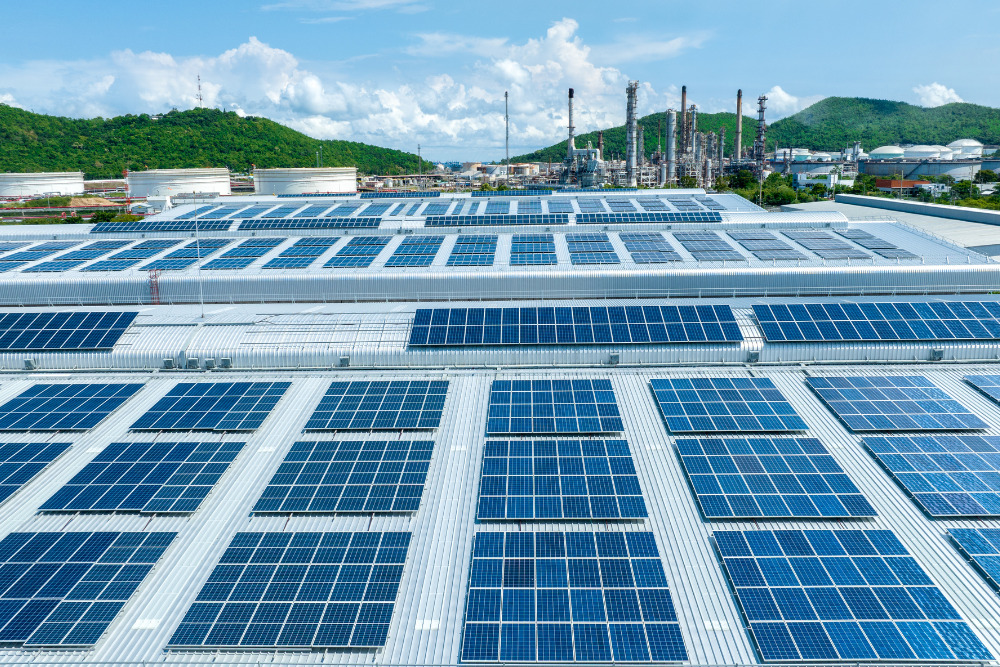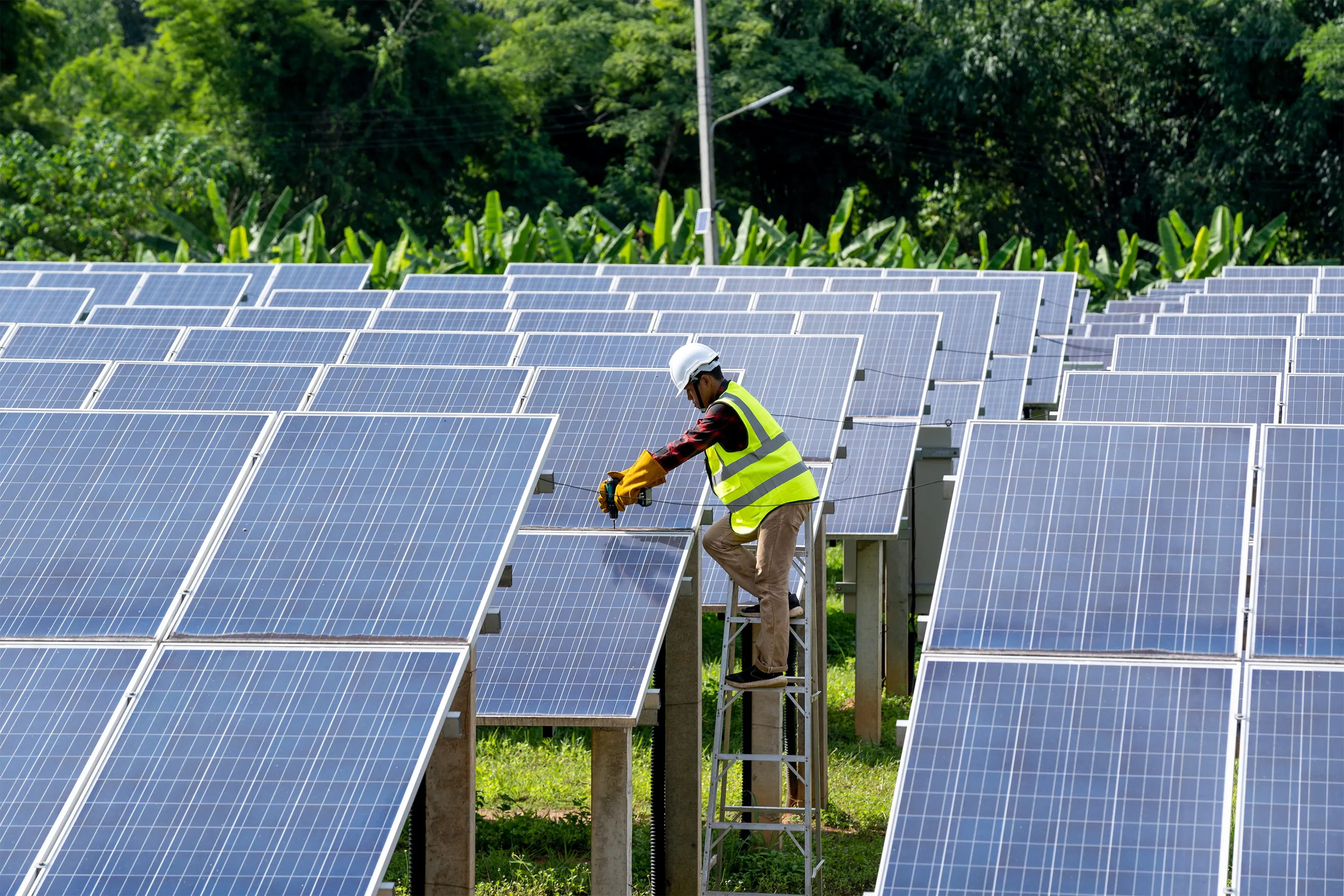The 9-Second Trick For Solar Companies In Virginia
The 9-Second Trick For Solar Companies In Virginia
Blog Article
Virginia Solar Panel Contractors: Lumina Solar Specializes In Offering Advanced Photovoltaic Solutions For Houses And Organizations
History and Establishing
Have you ever questioned how a solar panel business springs from a mere spark of inspiration into a powerhouse of renewable energy? It frequently begins with a vision-- one fueled by a blend of innovation, determination, and a pinch of serendipity. The journey of lots of solar business mirrors the evolution of the technology itself: from large, inefficient panels to streamlined, high-efficiency marvels harnessing the sun's bounty.
The Early Days
In the late 20th century, when solar power was still a specific niche idea, pioneers planted seeds for what would end up being an international movement. Envision a small workshop filled with curious engineers, relentlessly try out solar batteries. Their enthusiasm was palpable, frequently driven by a desire to fight climate change and decrease reliance on fossil fuels.
One such anecdote is about a creator who, motivated by an outdoor camping trip, recognized that even in remote locations, the sun might power necessary devices. This basic observation sparked a company's objective to democratize access to tidy energy.
Founding Principles

- Innovation: Continuously pressing the limits of solar innovation to enhance efficiency and durability.
- Sustainability: Dedicating to environment-friendly production and minimizing carbon footprints.
- Availability: Making renewable resource services economical and practical for daily users.
Turning points in Growth
| Year | Key Occasion |
|---|---|
| 1985 | Company established in a little garage, focusing on research study and advancement. |
| 1995 | First business solar panel item released, getting local attention. |
| 2005 | Expanded to international markets, welcoming global renewable resource goals. |
| 2015 | Introduced advanced solar panel innovation with improved energy conversion. |
Isn't it fascinating how these incremental steps, frequently ignored, form the energy landscape today? The solar panel company story is not practically innovation; it has to do with a ruthless quest for a brighter, cleaner future.

Innovations in Photovoltaic Panel Technologies
Ever observed how some photovoltaic panels shine brighter and last longer? It's not magic; it's the science of photovoltaic efficiency. Modern solar panel business invest greatly in technologies like bifacial cells, which capture sunshine from both sides, enhancing energy harvest without expanding roofing system space. Have you ever questioned why some panels perform better on cloudy days? That's due to advances in thin-film solar technology, which grows under diffused light conditions.
Item Variations Customized to Distinct Requirements
One size never ever fits all. Photovoltaic panel service providers now provide:
- Monocrystalline panels for optimum effectiveness and smooth aesthetics, perfect for space-constrained roofs.
- Polycrystalline panels, which provide a cost-efficient option without sacrificing excessive output.
- Building-integrated photovoltaics (BIPV), merging solar tech effortlessly into architectural aspects like windows and facades.
Choosing the ideal item isn't just about in advance cost; it's about matching your environment, energy objectives, and long-term cost savings. Homes shaded by trees require panels that excel in low-light situations, something lots of overlook till energy costs climb unexpectedly.
Technical Tips for Optimal Selection
- Assess the temperature coefficient-- lower values suggest panels lose less performance on hot days.
- Look for panels with enhanced anti-reflective coverings to optimize light absorption.
- Consider the panel's service warranty not just for flaws, but for guaranteed power output over decades.
- Don't undervalue the significance of the inverter technology paired with the panels; it can make or break your system's efficiency.
Beyond Panels: Emerging Patterns
Imagine solar panels that adjust their angle automatically to chase the sun-- tracking systems are becoming more available, increasing yield significantly. Or solar tiles that blend undetectably into your roofline, changing your home into a silent, self-dependent power generator. These innovations are improving what a photovoltaic panel business offers-- not just products, but integrated energy services.
Market Presence and Global Operations
Ever wonder why some photovoltaic panel business seem to sprout up in every corner of the globe while others barely make a ripple? The distinction lies not just in technology but in mastering the art of navigating diverse markets. Expanding internationally resembles planting seeds in various climates-- you need to comprehend each environment's unique conditions to flourish.
Take, for instance, the complex dance of logistics and supply chain management. Delivering panels midway across the world isn't almost range; it has to do with timing, customizeds, tariffs, and adapting to local need changes. A company with robust international operations anticipates these variables, guaranteeing panels get here on schedule without inflating costs. This insight is no small feat and often separates market leaders from fans.
Key Strategies for Expanding Market Existence
- Localized production: Developing production centers near target audience lowers shipping hold-ups and import complexities.
- Strategic collaborations: Working together with regional firms speeds up market penetration and constructs trust.
- Adaptive product style: Customizing photovoltaic panel tech to weather, sun intensity, and facilities subtleties boosts performance and acceptance.
What about the human aspect? Solar panel business running internationally need to reconcile cultural distinctions and regulatory nuances without forgeting their core mission. For example, what operate in a sun-drenched desert may falter in a damp coastal region. Often, the most innovative service is just listening-- soaking up regional insights to improve technology and technique.
Experts often advise a phased rollout instead of a shotgun growth. Why run the risk of overextension when determined growth constructs sustainable momentum? Scaling wisely indicates balancing aspiration with functional durability - Solar Panel Company Virginia. In the race for sustainable energy supremacy, perseverance can be as important as speed.
Ecological Impact and Sustainability Practices
When photovoltaic panels initially emerged, many presumed they carried zero environmental luggage. The reality is more nuanced. The production of photovoltaic cells involves rare earth metals and energy-intensive processes, which can leave a large carbon footprint before the panels even reach rooftops. Yet, the real environmental cost depends greatly on the sustainability practices employed by the solar panel business throughout the lifecycle of their items.
How often do we pause to consider what takes place to solar panels at the end of their useful life? Unlike batteries or electronic devices, photovoltaic panels can last 25-30 years, but disposal and recycling paths stay underdeveloped in lots of areas. A company dedicated to lowering environmental harm will have a robust strategy for recycling photovoltaic materials, salvaging important silicon, glass, and metals to prevent land fill accumulation.
Secret Sustainability Strategies
- Utilizing low-impact manufacturing strategies that reduce water and energy consumption.
- Carrying out closed-loop systems to recycle production waste back into brand-new panels.
- Taking part in transparent supply chain audits to ensure ethical sourcing of raw materials.
- Creating panels for simpler disassembly to assist future recycling efforts.
It's worth noting that some solar companies have pioneered ingenious methods, such as incorporating biodegradable components or using less harmful chemicals during fabrication. This not only reduces environmental strain however also sets a precedent for the website industry. The question stays: can the solar industry genuinely pivot towards a circular economy design without sacrificing performance or price?
Expert Tips for Examining Sustainability
- Ask about the business's commitment to carbon-neutral manufacturing and whether they offset emissions.
- Examine if they partner with certified recycling facilities devoted to photovoltaic panel waste.
- Look for openness reports detailing environmental impacts and sustainability objectives.
- Consider the durability and guarantee of panels as an indirect step of resource performance.
In the end, going with solar power should suggest more than just slashing electricity bills; it's about nurturing a future where energy is gathered properly and waste is attentively handled. Photovoltaic panel companies that welcome this viewpoint not just light up homes however also cast a brighter light on sustainable innovation.
Report this page